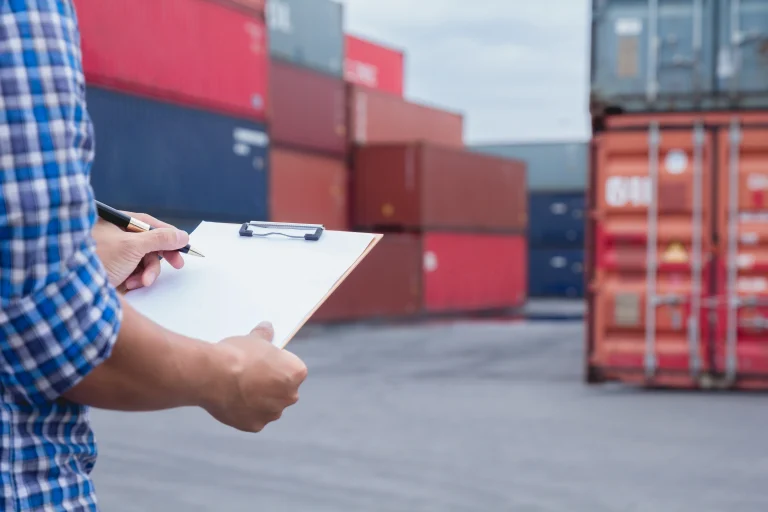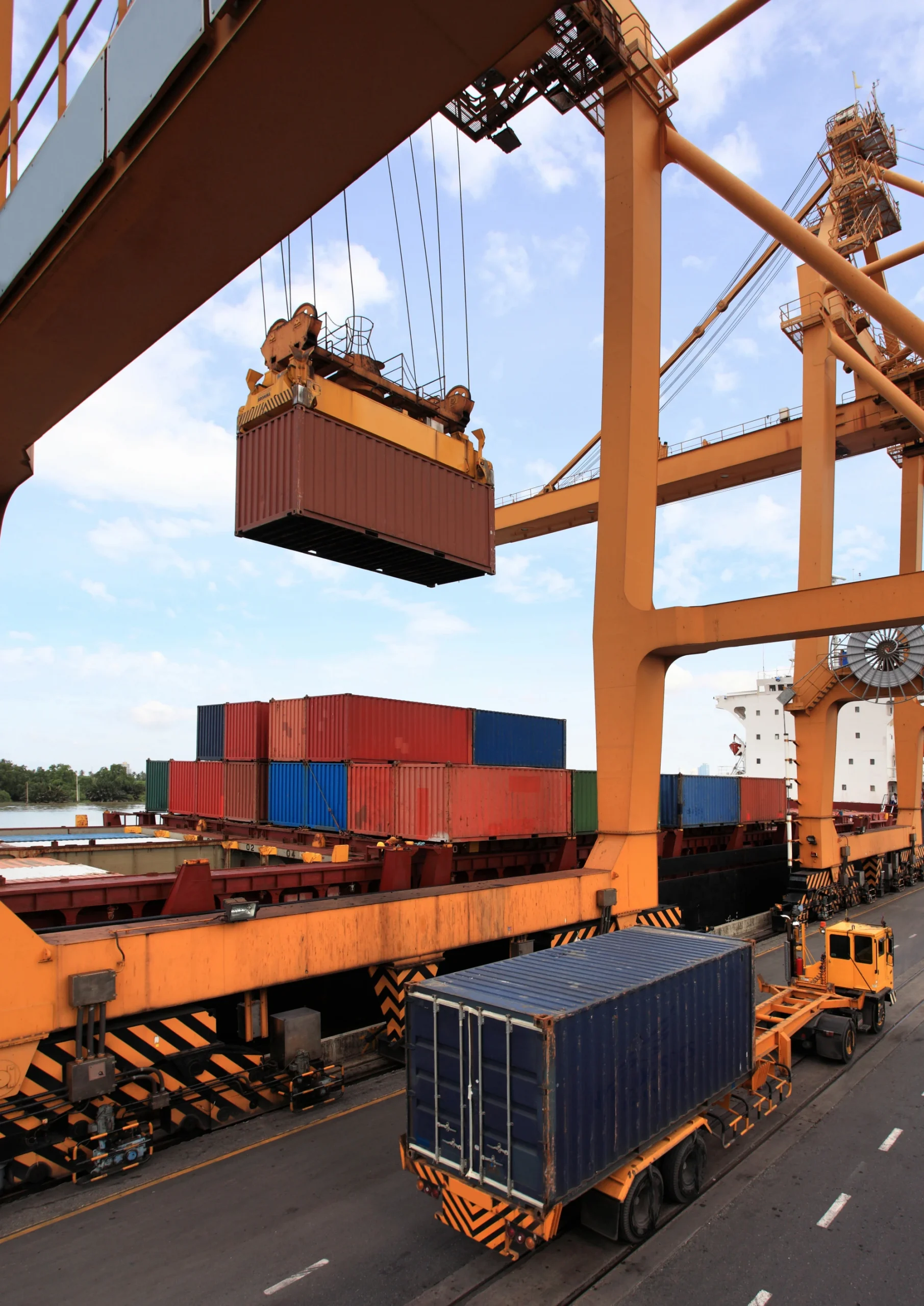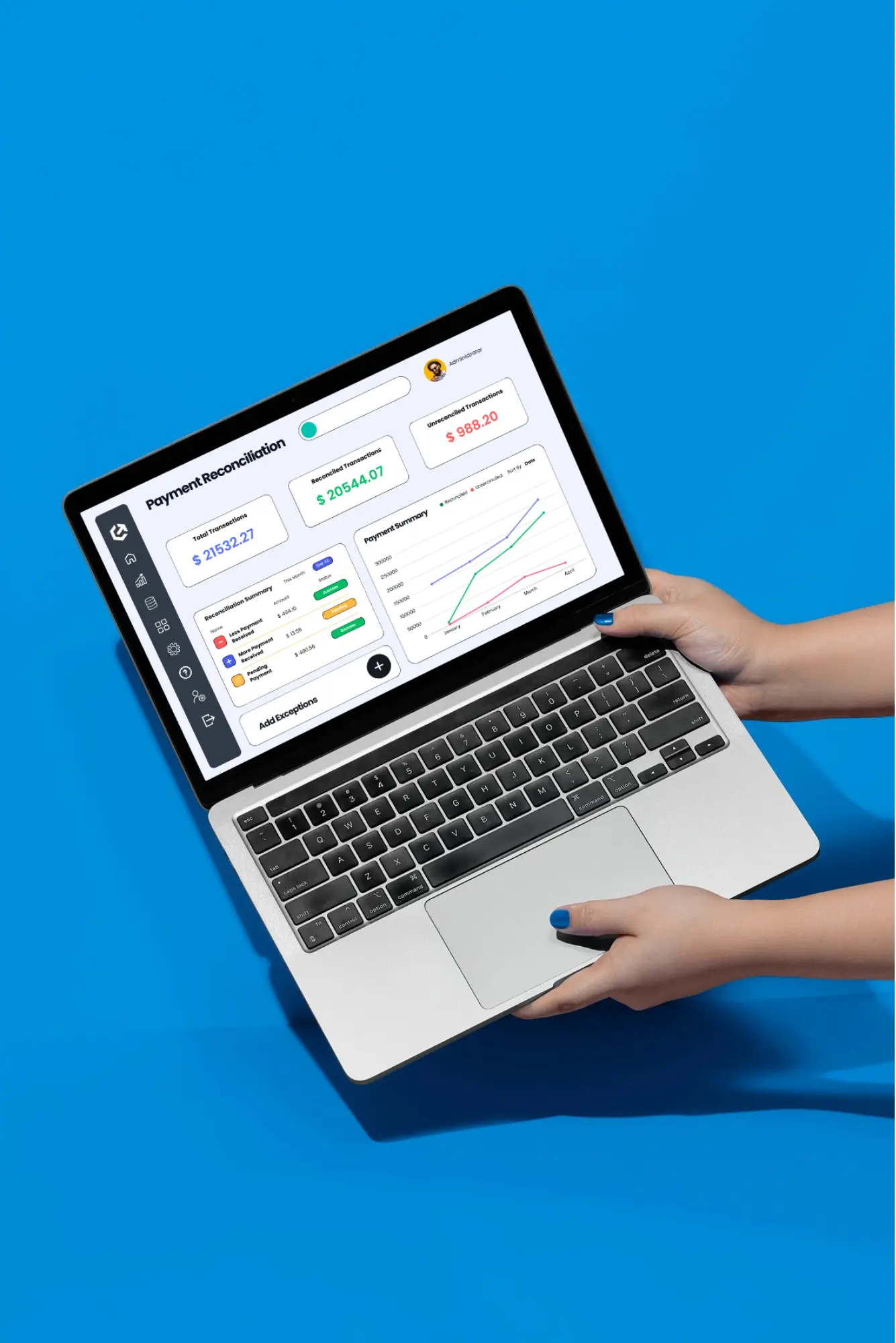Courier Invoice Verification
Streamlining Global Operations with Cointab

In today’s fast-paced, globalized world, shipping and logistics have become integral parts of every business, particularly for eCommerce companies. With an increase in online shopping and global shipping demands, businesses must keep a close eye on the cost and accuracy of shipping services. This is where Shipping and Logistics Reconciliation
Shipping reconciliation is the process of comparing the shipping invoices from couriers (e.g., UPS, FedEx, DHL) with the actual deliveries, ensuring that the charges are accurate and match what was agreed upon in the contract. It involves verifying details like shipping fees, surcharges, taxes, and other additional costs. Accurate reconciliation helps businesses avoid overpayments, identify discrepancies, and streamline their logistics expenses.
In the face of an ever-growing global supply chain, Cointab offers a cutting-edge solution that automates shipping and logistics reconciliation, simplifying the complex task of matching multiple invoices, fees, and charges from various couriers across different regions.

The Challenges of Shipping and Logistics Reconciliation
Shipping and logistics reconciliation can be a challenging process for businesses worldwide. Here are some common issues faced by companies dealing with courier invoices and shipping charges:
Multiple Couriers and Invoices
Managing finances across multiple couriers and invoices is a complex challenge for modern businesses. Each courier has unique fee structures, making reconciliation difficult, especially with varying billing cycles. The global logistics market, projected to reach $12.68 trillion by 2027 (Statista), further exacerbates this issue due to the increasing volume of shipments and the need for scalable reconciliation solutions.
International and Multi-Currency Transactions
Global shipping means that businesses deal with multiple currencies, different taxation rules, and customs charges for international shipments. According to McKinsey, 45% of global supply chain leaders struggle with managing multi-currency transactions across borders. This makes logistics reconciliation more challenging as businesses must track not just freight costs but also the impact of currency exchange rates and duties.
Hidden Fees and Surcharges
Many couriers impose hidden charges such as fuel surcharges, customs duties, and residential delivery fees. These additional fees often go unnoticed unless they are thoroughly reviewed. For businesses that rely on freight services for their global deliveries, tracking these surcharges can become time-consuming and prone to errors.
Discrepancies in Weight or Package Dimensions
Often, the weight or dimensions of packages are disputed between the shipper and the courier. If discrepancies arise — for instance, if the weight recorded by the courier doesn’t match what was initially declared — businesses can face unexpected charges. Accurately reconciling the actual shipping details with the charges becomes essential to avoid financial losses.
Manual Reconciliation
Reconciling shipping charges manually, particularly for businesses with high shipping volumes, can be both tedious and error-prone. Cross-referencing invoices, agreements, and shipping records requires significant human effort and attention to detail, leaving room for mistakes. Inaccuracies can lead to overpayments, missing refunds, or delays in cash flow.
Why Shipping and Logistics Reconciliation is Crucial for Global Businesses
As global trade continues to expand, the need for accurate and efficient logistics reconciliation has never been more important. Here’s why businesses should prioritize shipping and logistics reconciliation:

Cost Control
Shipping can account for a significant portion of a business’s operational costs. According to DHL, transportation costs can make up as much as 60% of a company’s supply chain costs. By automating shipping reconciliation, businesses can ensure they’re not overpaying for freight services and can identify cost-saving opportunities.
Reduced Errors and Fraud Risk
Manual processes are prone to human error, leading to financial losses or discrepancies in accounting. Automated reconciliation with Cointab reduces these errors and helps identify any potential fraud or fraudulent activity in the billing process, ensuring that businesses only pay for what they’ve agreed upon.
Improved Cash Flow
Efficient reconciliation ensures that all shipping invoices are paid on time, preventing delays in payments and preserving a healthy cash flow. By eliminating the risk of overpayments or missing refunds, businesses can optimize their financial operations and improve profitability.
Enhanced Visibility and Transparency
Accurate reconciliation provides businesses with better visibility into their shipping operations, helping identify trends, inefficiencies, and opportunities for improvement. Transparency in shipping costs also strengthens relationships with logistics providers and can improve negotiating power when renewing contracts.
How Cointab Streamlines Shipping and Logistics Reconciliation
To address these challenges, Cointab’s automated reconciliation solution offers businesses a seamless and efficient way to manage shipping invoices and freight charges. Here’s how Cointab helps businesses with their shipping and logistics reconciliation process:
Seamless Integration with Courier Platforms
Cointab integrates with major shipping and courier platforms such as UPS, FedEx, DHL, and USPS, among others. This allows the system to pull in data directly from these platforms, including shipping charges, invoice details, and delivery information. Automating this process ensures that businesses can reconcile charges accurately without the need for manual data entry.
Multi-Currency Support
For global operations, Cointab supports multi-currency reconciliation, allowing businesses to reconcile international shipping costs and fees. Whether dealing with USD, EUR, GBP, or other currencies, Cointab ensures that exchange rates and customs duties are accurately accounted for, reducing discrepancies in multi-currency transactions.
Fee and Surcharge Reconciliation
Whether it’s fuel surcharges, customs duties, or other hidden fees, Cointab tracks these charges and ensures they match the agreement terms. With Cointab, businesses can automatically reconcile complex fees and surcharges, ensuring that they are only paying for the services they used.
Cost Savings and Operational Efficiency
Cost Savings and Operational Efficiency By automating the reconciliation process, Cointab helps businesses save time, reduce manual errors, and ensure that they are not overpaying for logistics services. This leads to operational efficiency, cost savings, and improved cash flow management.
Manual Reconciliation
Reconciling shipping charges manually, particularly for businesses with high shipping volumes, can be both tedious and error-prone. Cross-referencing invoices, agreements, and shipping records requires significant human effort and attention to detail, leaving room for mistakes. Inaccuracies can lead to overpayments, missing refunds, or delays in cash flow.
Key Stats on the Importance of Automated Reconciliation

The global freight forwarding market is expected to reach $230 billion by 2025

45% of supply chain leaders struggle with managing multi-currency and international shipping transactions

60% of shipping-related discrepancies are related to fees and surcharges, making effective reconciliation critical to maintaining accurate records

Companies that automate logistics reconciliation can save up to 30% in shipping costs by reducing overcharges and discrepancies
Conclusion
Shipping and logistics reconciliation plays a crucial role in managing operational costs, ensuring financial accuracy, and maintaining a smooth global supply chain. With Cointab’s automated reconciliation solution, businesses can eliminate the challenges associated with manual processes, hidden fees, and discrepancies across multiple couriers and global transactions. By streamlining and automating this essential task, Cointab not only improves operational efficiency but also helps businesses gain more control over their shipping costs, ultimately supporting global growth and profitability.
Schedule a demo today and discover how Cointab can transform your reconciliation process!
